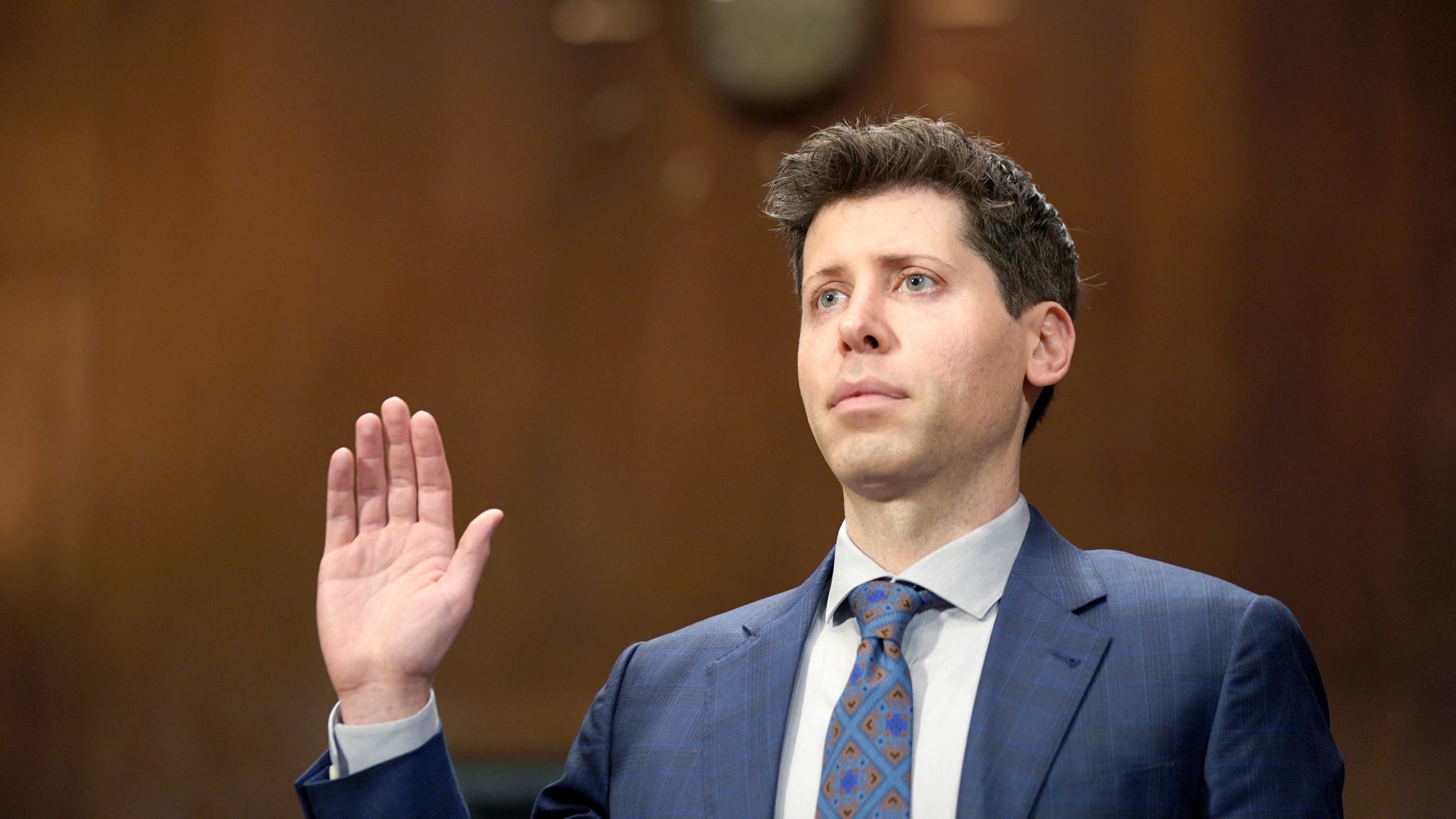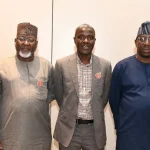Sacked OpenAI CEO, Sam Altman Joins Microsoft
Microsoft has hired Sam Altman to power up its innovation in artificial intelligence after the co-founder of OpenAI was ousted as CEO in a chaotic boardroom coup on Friday. Meanwhile, the ChatGPT...

Microsoft has hired Sam Altman to power up its innovation in artificial intelligence after the co-founder of OpenAI was ousted as CEO in a chaotic boardroom coup on Friday. Meanwhile, the ChatGPT company will get its third CEO in three days.
Table Of Content
It’s another major shakeup to the balance of power over artificial intelligence, the most significant new technology in decades.
Greg Brockman, another co-founder of OpenAI, is also joining Microsoft — the startup’s biggest financial backer. Brockmann quit as OpenAI president after Altman was fired.
Emmett Shear, the former CEO of Amazon’s streaming service Twitch, will join OpenAI as interim CEO. He replaces Mira Murati, who was named interim CEO when Altman was fired. She will return to her role as OpenAI’s chief technology officer.
“We look forward to getting to know Emmett Shear,” Microsoft CEO Satya Nadella said in a post on X, formerly known as Twitter. “And we’re extremely excited to share the news that Sam Altman and Greg Brockman, together with colleagues, will be joining Microsoft to lead a new advanced AI research team.”
A win for Microsoft
With its $13 billion investment, Microsoft is OpenAI’s biggest stakeholder. Altman will be the CEO of the “new group,” Nadella said in his post. Shares of Microsoft rose about 2% in premarket trading Monday.
Altman’s move to Microsoft brought to an end a weekend of feverish speculation that the OpenAI board could perform a dramatic U-turn and rehire the high-flying Silicon Valley entrepreneur and investor.
Altman spent Sunday at OpenAI’s headquarters, posting on X a photo of himself holding a green guest badge connected to a lanyard labeled “OpenAI.” He wrote: “first and last time i ever wear one of these.” Multiple news outlets, including the Wall Street Journal and New York Times, reported that the board that fired Altman had been having second thoughts and engaged with him and Brockman to discuss their return.
With the Monday announcement that Altman would be joining Microsoft, that speculation appeared to have been put to bed — at least for now.
In an open letter Monday morning hundreds of OpenAI employees called for the resignation of OpenAI’s board, accusing it of mishandling Altman’s firing, and threatened to quit and move to Microsoft along with Altman.
In the wake of the announcement of his move to Microsoft on Monday, Altman posted on X, saying, “we have more unity and commitment and focus than ever before. we are all going to work together some way or other, and i’m so excited. one team, one mission.”
He also praised OpenAI’s leadership team, including Murati. “[They] have been doing an incredible job through this that will be in the history books,” Altman said on X.
Later on Monday, Altman said that for him and Nadella, the “top priority remains to ensure [OpenAI] continues to thrive. we are committed to fully providing continuity of operations to our partners and customers.”
The new face(s) of AI
In a post on X early Monday, Shear described the chance to join OpenAI as “a once-in-a-lifetime” opportunity.
“I took this job because I believe that OpenAI is one of the most important companies currently in existence. When the board shared the situation and asked me to take the role, I did not make the decision lightly,” he added.
Shear had left his role as CEO of Twitch in March. In his X post, Shear said it took him just a “few hours” of reflection to make up his mind to join OpenAI.
“Ultimately I felt that I had a duty to help if I could,” Shear said.
But Shear also noted that he’s taking over a company with a severely damaged reputation after the bungled firing of Altman and the whirlwind of a weekend in which it flirted with a return of its just-ousted CEO. Shear said that process was “handled very badly, which has seriously damaged our trust.”
He said the company would hire an independent investigator to report on what happened in the lead-up to Altman’s firing. Shear did not go into details about why Altman was given the boot, but he said that it was not related to concerns about Altman leading the company in an unsafe direction or opposition to his efforts to make money.
“The board did *not* remove Sam over any specific disagreement on safety, their reasoning was completely different from that,” Shear said. “I’m not crazy enough to take this job without board support for commercializing our awesome models.”
Based on the results of the probe, and his discussions with other stakeholders, Shear said he would make “significant” changes to OpenAI in the coming month.
“OpenAI’s stability and success are too important to allow turmoil to disrupt them like this,” he said.
As CEO, he’ll have to work with Altman, Brockman and other former OpenAI employees who quit and will make the move to Microsoft, which is the startup’s biggest strategic partner. He’ll also have to work with Murati, who praised Altman on his way out, and who — like many OpenAI employees, including some who quit in protest at his dismissal – posted on X Monday that “OpenAI is nothing without its people.”
Altman has remained mostly quiet about his firing and hiring over the weekend. On Monday morning, responding to Nadella’s X post, he said, “the mission continues.”
“I’m super excited to have you join as CEO of this new group, Sam, setting a new pace for innovation,” Nadella posted in response. “We’ve learned a lot over the years about how to give founders and innovators space to build independent identities and cultures within Microsoft, including GitHub, Mojang Studios, and LinkedIn, and I’m looking forward to having you do the same.”
Moving too fast?
The details of Altman’s firing remain murky. In its announcement Friday, OpenAI claimed Altman had been insufficiently “candid” with the board, and that had hindered the board’s ability to carry out its responsibilities.
That ambiguous language sent the rumor mill flying. But Brockman gave vivid first hand details in a post on X.
He said Altman had found out he was being fired just minutes before the company made the news public. Brockman suggested Altman had been fired because of a disagreement with the company’s research division, led by another co-founder and chief scientist Ilya Sutskever.
A key factor was tension between Altman, who favored developing AI more aggressively, and members of the OpenAI board, who wanted to move more cautiously, according to CNN contributor Kara Swisher, who spoke to sources knowledgeable about the crisis.
Altman had been privately pushing the company to bring products to market more quickly and to sell them for a profit. In public, however, Altman has long cautioned about risks posed by AI.
“Is [AI] gonna be like the printing press that diffused knowledge, power, and learning widely across the landscape that empowered ordinary, everyday individuals that led to greater flourishing, that led above all to greater liberty?” he said in a May Senate subcommittee hearing pressing for regulation. “Or is it gonna be more like the atom bomb…?”
At the same time, Altman had OpenAI place its foot firmly on the gas pedal.
The startup’s executives and iPhone designer Jony Ive had reportedly held talks to raise $1 billion from Japan’s SoftBank for an AI device to replace the smartphone. And OpenAI had won a multibillion-dollar investment commitment from Microsoft as part of a partnership that included rapid deployment of ChatGPT-like technology across Microsoft’s search engine Bing and other products.
More recently, Altman announced that OpenAI would make its tools widely available so anyone could create their own version of ChatGPT.
Microsoft was not informed of Altman’s firing until “just before” the public announcement, Swisher said, and employees were not given any advance warning.









No Comment! Be the first one.